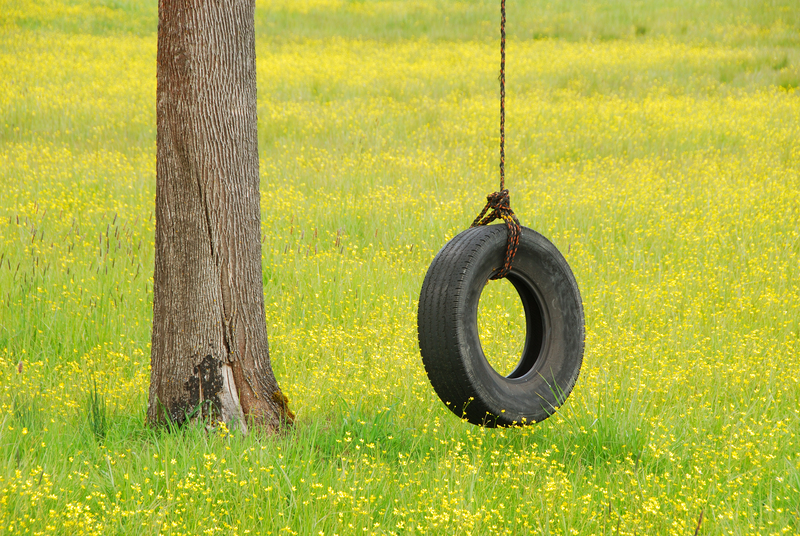Clear Clutter: Transformative Waste Reduction Methods for Homes
Are you overwhelmed by clutter and looking for meaningful ways to reduce waste at home? Does it ever feel like your living spaces are taken over by unwanted items and overflowing garbage bins? Clearing clutter isn't just about tidying up; it's about adopting sustainable waste reduction methods for homes that benefit both your mental well-being and the environment. In this comprehensive guide, we'll explore effective techniques, practical tips, and innovative strategies for turning your home into a well-organized, eco-friendly haven.

Why Reducing Household Waste Matters
Before diving into transformative waste reduction techniques, let's highlight why reducing household waste is crucial:
- Environmental Impact: Less waste means fewer landfills and a lower carbon footprint.
- Financial Savings: Minimizing waste translates to spending less on unnecessary items and disposal fees.
- Mental Clarity: A clutter-free home is linked to lower stress and increased productivity.
- Health Benefits: Clean spaces help reduce allergens and create healthier living environments.
1. Start with a Mindful Decluttering Process
Commit to Conscious Consumption
Transformative waste management in homes begins long before items enter your space. Every new purchase is a potential future source of waste, so commit to:
- Evaluating Needs: Ask yourself if you truly need new items before buying.
- Choosing Quality: Invest in durable, long-lasting products that won't need frequent replacement.
- Reducing Impulse Buys: Wait 24 hours before making non-essential purchases.
Sort and Categorize Belongings
Efficient sorting is the foundation of effective household waste reduction. Set aside time for each room and sort your belongings into four main categories:
- Keep: Items you use and love.
- Donate or Sell: Usable items that no longer serve you.
- Recycle: Materials accepted by your local recycling program.
- Dispose: Things that are broken, unsafe, or cannot be reused or recycled.
Implement the "One-In, One-Out" Rule
Maintaining a clutter-free home is an ongoing process. Whenever you acquire something new, commit to removing a similar item. This simple waste reduction method keeps your belongings in balance and helps avoid the accumulation of unnecessary items.
2. Embrace Sustainable Storage Solutions
Opt for Multi-functional Furniture
Clutter often arises from a lack of efficient storage. Invest in furniture that doubles as storage--think ottomans with hidden compartments, beds with drawers, and wall-mounted shelves. This maximizes space while keeping your home organized.
Label & Organize
Use clearly labeled bins, baskets, and boxes. Group similar items together so you'll always know where to find things--and where to return them. This step is essential for long-term clutter control.
Repurpose Instead of Tossing
Give new life to old items:
- Turn glass jars into pantry organizers or vases.
- Use shoe boxes to sort office supplies or craft materials.
- Transform worn-out linens into cleaning rags.
Creative repurposing not only reduces waste in homes but also encourages resourcefulness.
3. Establish an Efficient Recycling & Composting System
Streamline Household Recycling
Make recycling easy and accessible in all major rooms--kitchen, bathrooms, home office, and even bedrooms. Clearly label bins for:
- Plastics
- Paper & Cardboard
- Glass
- Metals
Research your local recycling guidelines to ensure you're sorting correctly. Encourage family members to participate actively in waste reduction efforts at home.
Start Composting Organics
Composting is a highly effective waste reduction strategy, keeping food scraps and yard waste out of landfills. Start a countertop compost bin or an outdoor compost pile. Acceptable compost materials include:
- Fruit and vegetable scraps
- Eggshells
- Coffee grounds
- Yard trimmings and leaves
- Shredded newspaper (unbleached)
A home compost system supports a circular, waste-free economy.
4. Reduce Single-Use Items and Packaging
Switch to Reusables
Single-use products are major contributors to household waste. For a significant clutter reduction, swap out disposables with reusables:
- Cloth shopping bags
- Stainless steel or glass water bottles
- Beeswax food wraps instead of plastic wrap
- Reusable coffee cups
- Microfiber or cloth napkins
Shop in Bulk and Minimal Packaging
Opt for stores offering bulk goods or products with minimal, recyclable packaging. Bring your own containers for grains, cereals, spices, and cleaning products. This step is crucial for minimizing the amount of packaging entering your home, and it cuts down both clutter and overall waste.
5. Maintain a Regular De-cluttering Routine
Set a Decluttering Schedule
Just like cleaning, decluttering works best when done consistently. Dedicate time monthly or seasonally to reassess your possessions and remove what you no longer need. Involve every household member to create a culture of conscious consumption.
- Schedule a "donation day" every quarter
- Regularly check closets, kitchen drawers, and storage areas for unused items
- Plan a digital declutter, organizing and deleting unnecessary files and emails
6. Donate, Sell, or Swap Unused Items
What you no longer use may be valuable to someone else. Donate gently used clothing, furniture, toys, and appliances to local charities or thrift stores. Organize swaps with neighbors for books, decor, or kids' items, and sell unwanted possessions online for extra cash.
- Check community groups for swap events
- Use platforms like Craigslist, Facebook Marketplace, and eBay
- Host a neighborhood garage sale to promote circular use of goods
This approach supports waste reduction at home by keeping items in circulation and out of landfills.
7. Adopt Minimalist Lifestyle Principles
The philosophy of minimalism goes hand-in-hand with transformative waste reduction. By embracing the "less is more" mindset, you naturally prevent clutter from accumulating in the first place.
- Prioritize quality and functionality over quantity
- Let go of aspirational or sentimental items that no longer serve a purpose
- Curate spaces intentionally, focusing on what brings you joy and utility
A minimalist approach isn't about deprivation--it's about creating space for what matters most.
8. Educate and Involve Your Household
Long-term waste reduction methods for homes are most successful when everyone participates. Educate your family or roommates about the environmental impact of clutter and waste.
- Make waste reduction a fun family challenge
- Reward eco-friendly behaviors, like proper recycling or reusing materials creatively
- Share tips and resources with friends and neighbors to amplify your impact
9. Embrace Digital Solutions for Paperless Living
Paper clutter is a persistent challenge for many households. Go digital to significantly reduce paper waste and streamline organization:
- Switch to paperless billing and statements
- Scan and store important documents in secure cloud storage
- Use digital to-do lists and calendars
- Unsubscribe from junk mail and unnecessary catalogs
Reducing paper not only declutters your physical space but also protects sensitive information.
10. Sustainable Cleaning and Maintenance
Reducing waste at home includes making eco-friendly choices in everyday cleaning and maintenance:
- Use refillable, non-toxic cleaning products
- Purchase concentrated solutions to reduce packaging waste
- Make DIY cleaners with vinegar, baking soda, and essential oils
- Opt for washable cleaning cloths over paper towels
These habits prevent plastic bottles and chemical residues from clogging your cabinets--and landfills.

Bonus: Smart Tech for Home Waste Reduction
Modern technology can streamline waste reduction and clutter control:
- Smart bins track recycling habits and alert you to collection days
- Inventory apps help you track pantry goods and avoid buying duplicates
- Home organization systems, like digital voice assistants, can remind you of donation or recycling schedules
Leveraging technology means less guesswork and a more efficient, clutter-free home.
Conclusion: Transform Your Home and Lifestyle for the Better
The journey to a clutter-free, eco-conscious household is both rewarding and transformative. By adopting these innovative waste reduction methods for homes, you not only gain a cleaner and more organized living space, but you also promote a sustainable future for the planet. From mindful purchasing and efficient sorting to creative repurposing, recycling, and digital decluttering, every small change compounds into a lasting impact.
Start today by choosing just one or two strategies from this guide. With consistency and commitment, you'll soon notice how simple adjustments can yield less waste, more peace, and true clarity in your home.
Ready to clear the clutter? Transform your household for the better--one room, one item, and one habit at a time.
```